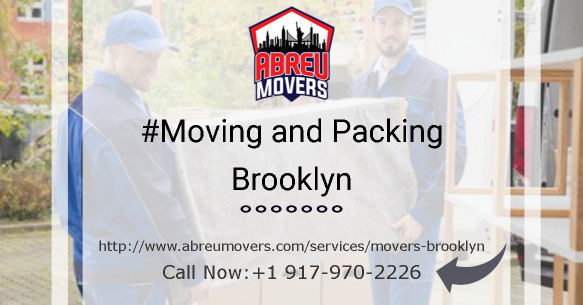

Introduction
Moving to a new location can be an exciting and overwhelming experience. There are numerous things to consider, such as packing, organizing, and hiring professional movers. One aspect that often gets overlooked is how to handle vehicle transportation during a local move. Whether you have one car or multiple vehicles, it's essential to plan ahead to ensure a smooth transition. In this article, we will provide valuable insights on how to handle vehicle transportation during a local move, including tips and advice from industry experts.
Table of Contents
Why is Vehicle Transportation Important During a Local Move? Hiring Local Movers for Vehicle Transportation Tips for Preparing Your Vehicle for the Move Choosing the Right Moving Company for Vehicle Transportation Understanding the Costs of Vehicle Transportation Special Considerations for Commercial Moving Ensuring the Safety of Your Vehicles During Transportation The Benefits of Using Professional Piano Movers Planning Ahead: Scheduling Vehicle Transportation Services How to Pack and Secure Your Vehicle for the Move Selecting the Right Insurance Coverage for Vehicle Transportation What to Do if There are Delays in Vehicle Transportation Communicating with Your Moving Company During the Process Best Practices for Long-Distance Vehicle Transportation FAQs: Frequently Asked Questions About Handling Vehicle Transportation During a Local Move1. Why is Vehicle Transportation Important During a Local Move?
Moving locally may not seem like it requires extensive planning when it comes to vehicle transportation, but neglecting this aspect can lead to unnecessary stress and complications. Ensuring that your vehicles arrive safely at your new location is crucial for uninterrupted daily routines and minimizing any potential inconveniences.
2. Hiring Local Movers for Vehicle Transportation
When it comes to vehicle transportation during a local move, it is advisable to hire professional movers with experience in handling such tasks. Local movers in Brooklyn, for example, have extensive knowledge of the area and https://www.google.com/maps/place/Brooklyn+Moving+Company+-+Abreu+Movers+Brooklyn/@40.7134974,-73.958466,17z/data=!4m6!3m5!1s0x89c2595fc3c45c07:0x8ccd74bccce06f98!8m2!3d40.7134974!4d-73.958466!16s%2Fg%2F11cn8lk61m?entry=ttu&g_ep=EgoyMDI0MTEyNC4xIKXMDSoASAFQAw%3D%3D can navigate efficiently through the city streets. By entrusting your vehicle transportation to experts, you can focus on other aspects of your move and have peace of mind knowing that your vehicles are in capable hands.
3. Tips for Preparing Your Vehicle for the Move
Before the move, it is essential to prepare your vehicles properly to minimize any potential damages during transportation. Here are some tips to follow:
- Clean your vehicle thoroughly: Remove any personal belongings and clean both the interior and exterior of your vehicle. Document existing damages: Take pictures or videos of your vehicle from different angles to have evidence of its condition before transportation. Remove loose items: Make sure to secure any loose items in your vehicle or remove them altogether to avoid damage during transit.
4. Choosing the Right Moving Company for Vehicle Transportation
Selecting a reliable moving company is crucial when it comes to handling vehicle transportation during a local move. Look for companies that specialize in vehicle transportation or have a proven track record in safely transporting vehicles. Reading online reviews and checking their licensing and insurance information can help you make an informed decision.
5. Understanding the Costs of Vehicle Transportation
When planning your budget for a local move, it's important to consider the costs associated with vehicle transportation. The price will depend on factors such as the distance traveled, the size and weight of the vehicle, and any additional services required. Getting quotes from multiple moving companies will allow you to compare prices and choose the most affordable option without compromising on quality.
6. Special Considerations for Commercial Moving
For businesses planning a local move, there are additional considerations when it comes to handling commercial vehicles. It is essential to coordinate with your moving company to ensure a smooth transition without disrupting business operations. Discussing specific requirements and timelines with your chosen movers will help avoid any potential complications.
7. Ensuring the Safety of Your Vehicles During Transportation
The safety of your vehicles should be a top priority during transportation. To ensure their protection, consider the following:
- Choose enclosed transportation: If you have valuable or classic vehicles, opting for enclosed transportation can provide an extra layer of protection from the elements and potential damage. Verify insurance coverage: Before entrusting your vehicles to a moving company, verify their insurance coverage and inquire about additional options if necessary. Check for tracking capabilities: Some moving companies offer tracking services, allowing you to monitor the progress of your vehicle's transportation.
8. The Benefits of Using Professional Piano Movers
Transporting a piano during a local move requires specialized expertise and equipment. Hiring professional piano movers ensures that your instrument is handled safely and reaches its destination without any damage. These experts are trained in disassembling, packing, and reassembling pianos, making the process stress-free for you.
9. Planning Ahead: Scheduling Vehicle Transportation Services
To avoid any last-minute surprises or delays, it is crucial to plan ahead and schedule vehicle transportation services well in advance. This allows the moving company to allocate resources accordingly and ensures that your vehicles are picked up and delivered on time.
10. How to Pack and Secure Your Vehicle for the Move
Properly packing and securing your vehicle is essential to prevent any damages during transit. Here are some tips to follow:
- Remove all personal belongings from the vehicle. Check tire pressure and ensure they are properly inflated. Secure loose parts or accessories. Apply protective coverings to vulnerable areas such as mirrors or antennas.
11. Selecting the Right Insurance Coverage for Vehicle Transportation
While moving companies have insurance coverage for vehicle transportation, it's important to understand the extent of their liability. Consider obtaining additional insurance coverage if needed to provide extra protection for your vehicles during the move. Consult with your insurance provider to determine the best option for your situation.
12. What to Do if There are Delays in Vehicle Transportation
Despite careful planning, delays in vehicle transportation can occur. If you experience any delays, communicate promptly with your moving company to find out the cause and potential solutions. Staying in touch and maintaining open lines of communication will help you navigate any unforeseen circumstances.
13. Communicating with Your Moving Company During the Process
Clear and effective communication with your chosen moving company is essential throughout the vehicle transportation process. Provide them with all necessary details about your vehicles, including their dimensions, weight, and any unique characteristics that may require special handling. This ensures that the movers are well-prepared and can anticipate any challenges.
14. Best Practices for Long-Distance Vehicle Transportation
If you're planning a long-distance move, additional considerations come into play when it comes to vehicle transportation. Here are some best practices to keep in mind:
- Schedule regular maintenance: Ensure that your vehicle is in optimal condition before embarking on a long-distance journey. Plan for rest stops: Take breaks during your journey to allow yourself and your vehicle to rest. Consider weather conditions: Check weather forecasts along your route and plan accordingly to avoid adverse conditions.
15. FAQs: Frequently Asked Questions About Handling Vehicle Transportation During a Local Move
Q1: Can I transport my vehicle myself during a local move?
A1: While it is possible to transport your vehicle yourself, hiring professional movers who specialize in vehicle transportation offers numerous benefits such as expertise, equipment, and insurance coverage.
Q2: How much does it cost to transport a vehicle locally?
A2: The cost of transporting a vehicle locally will depend on various factors such as distance traveled, size of the vehicle, and additional services required. It's best to request quotes from multiple moving companies to compare prices.
Q3: Can I pack personal belongings in my vehicle during transportation?
A3: It is generally recommended to remove all personal belongings from your vehicle before transportation. However, it's best to confirm this with your chosen moving company as some may allow limited personal items in the vehicle.
Q4: What if my vehicle gets damaged during transportation?
A4: In the unfortunate event that your vehicle sustains damage during transportation, contact your moving company immediately and document the damages with photographs or videos. They will guide you through the claims process and assist in resolving the issue.
Q5: Are there any restrictions on the types of vehicles that can be transported?
A5: Most moving companies can transport a wide range of vehicles, including cars, trucks, motorcycles, and even boats. However, it's always best to check with the specific moving company regarding any restrictions or special requirements.
Q6: How far in advance should I schedule vehicle transportation services?
A6: It is advisable to schedule vehicle transportation services as soon as you have confirmed your move date. This allows sufficient time for the moving company to make necessary arrangements and ensures a smooth process.
Conclusion
Handling vehicle transportation during a local move requires careful planning and consideration. By hiring professional movers experienced in handling vehicles, preparing your vehicles properly, and communicating effectively with your chosen moving company, you can ensure a seamless transition for both you and your vehicles. Remember to prioritize safety, choose appropriate insurance coverage, and plan ahead for a stress-free moving experience.